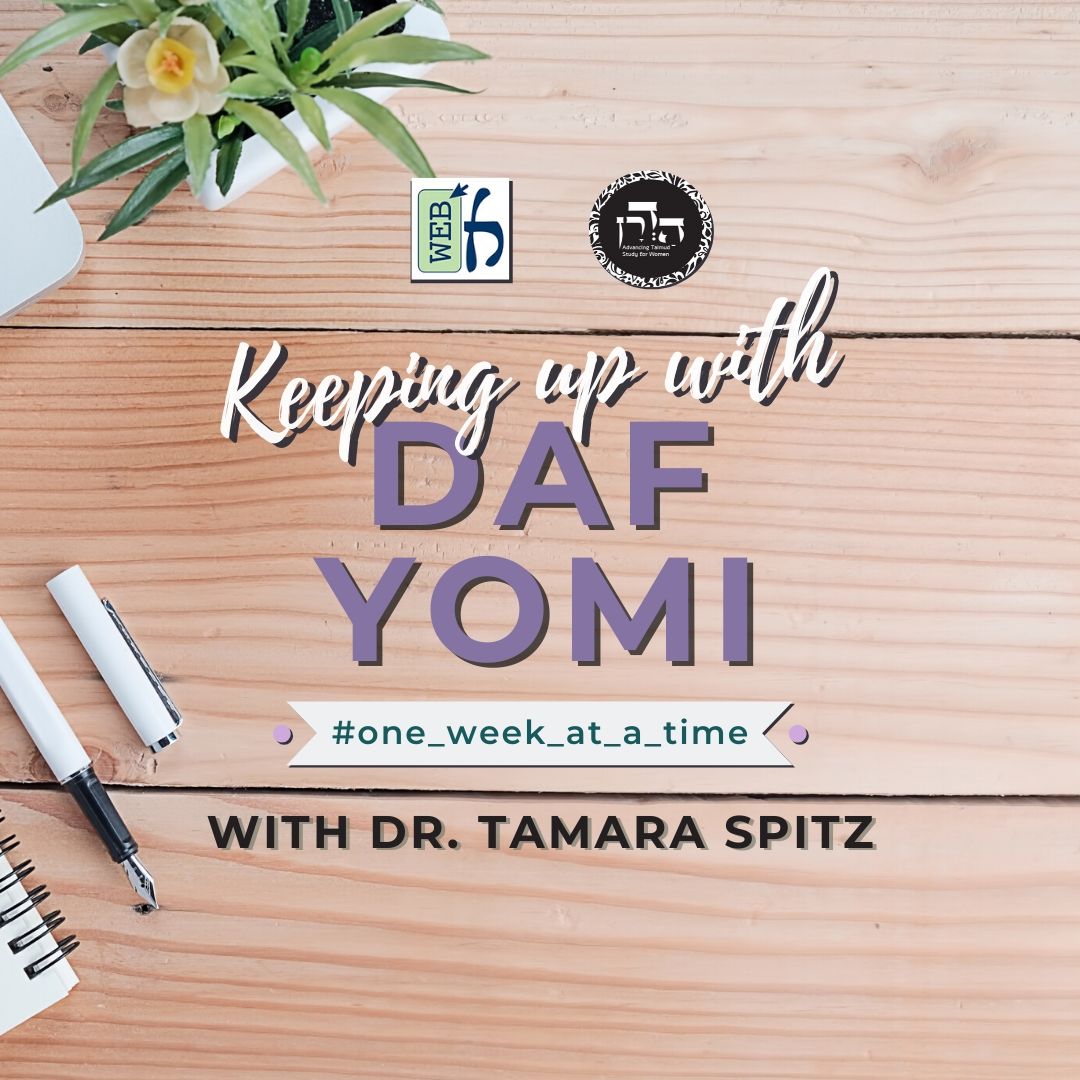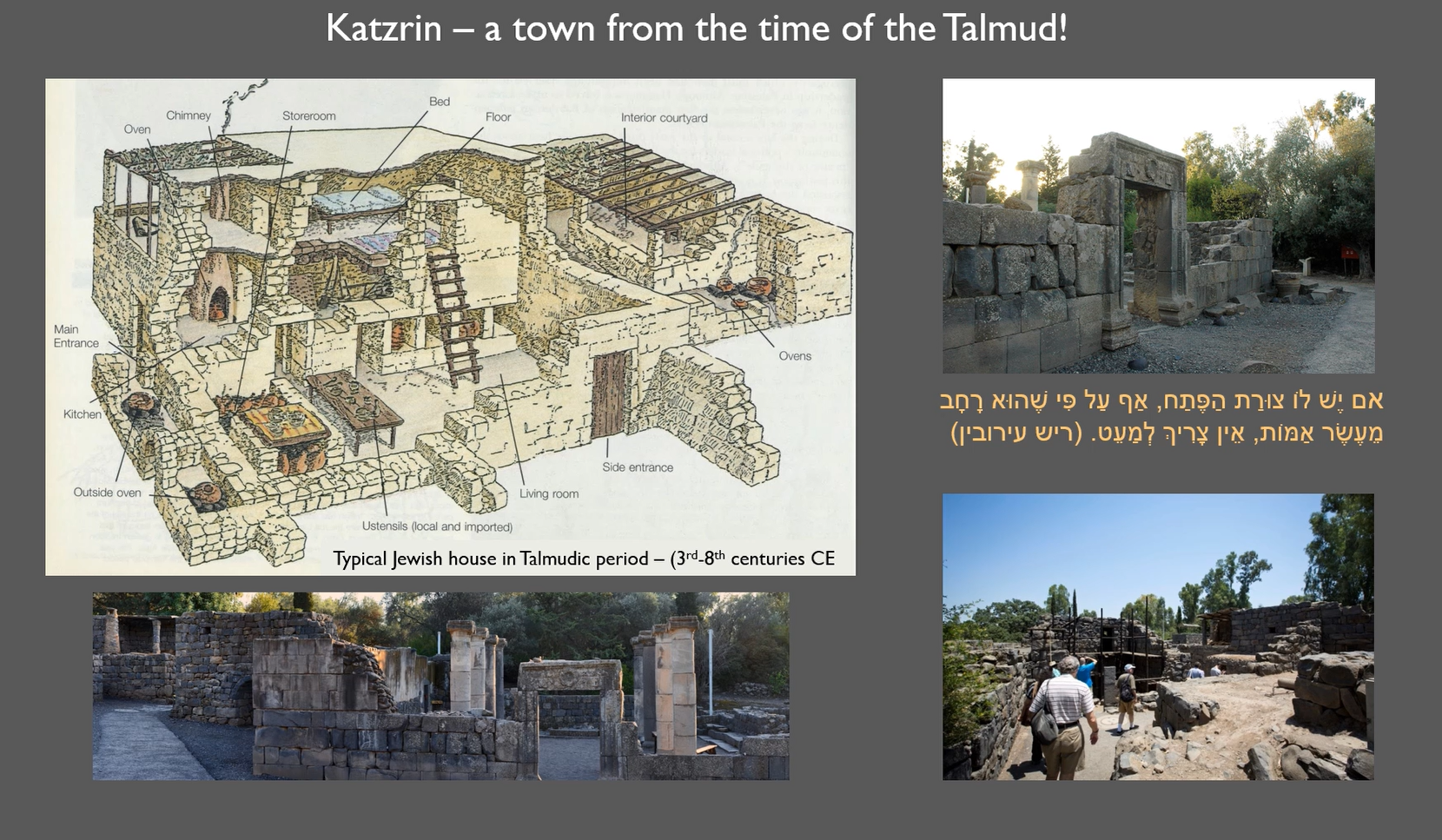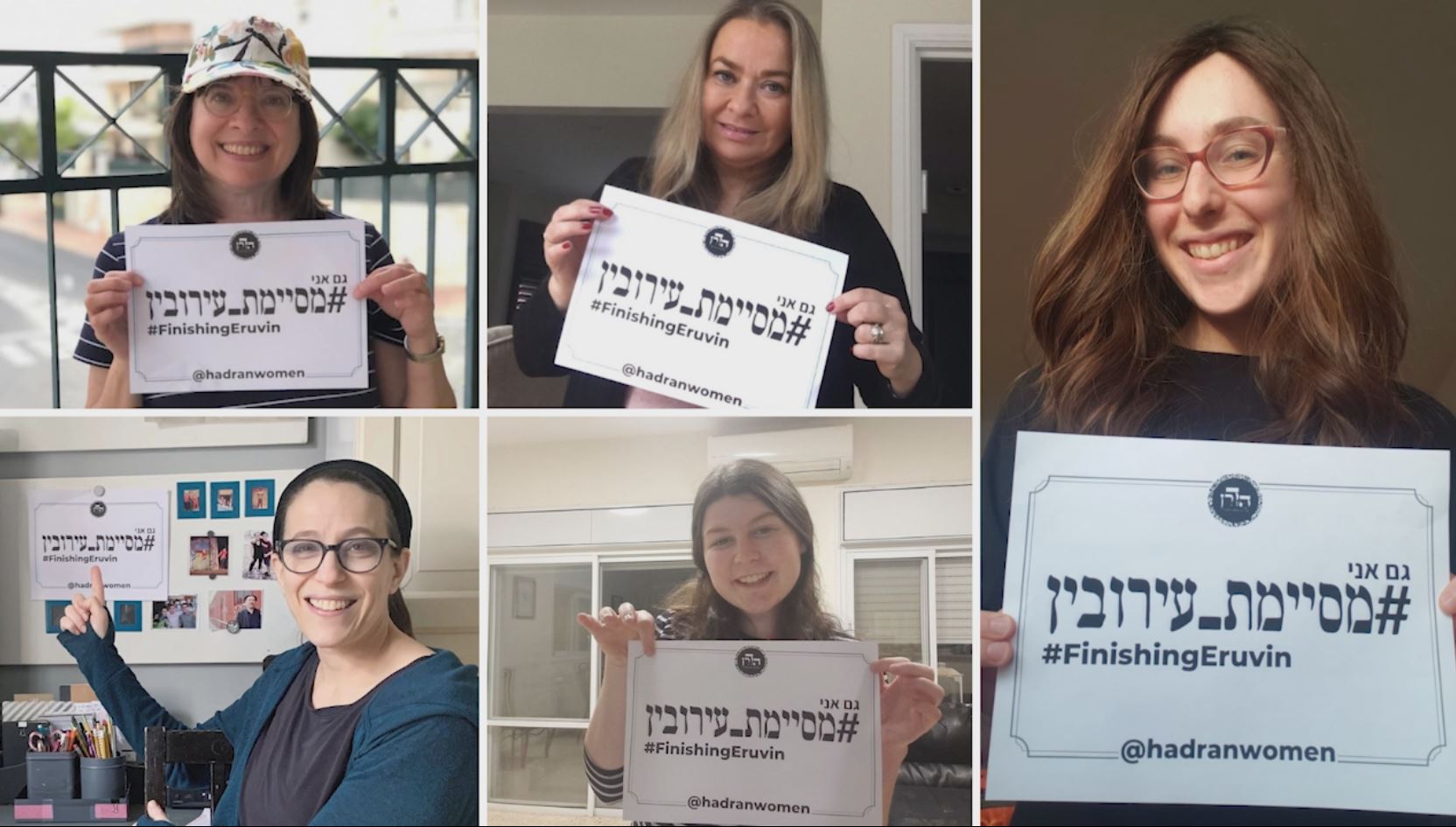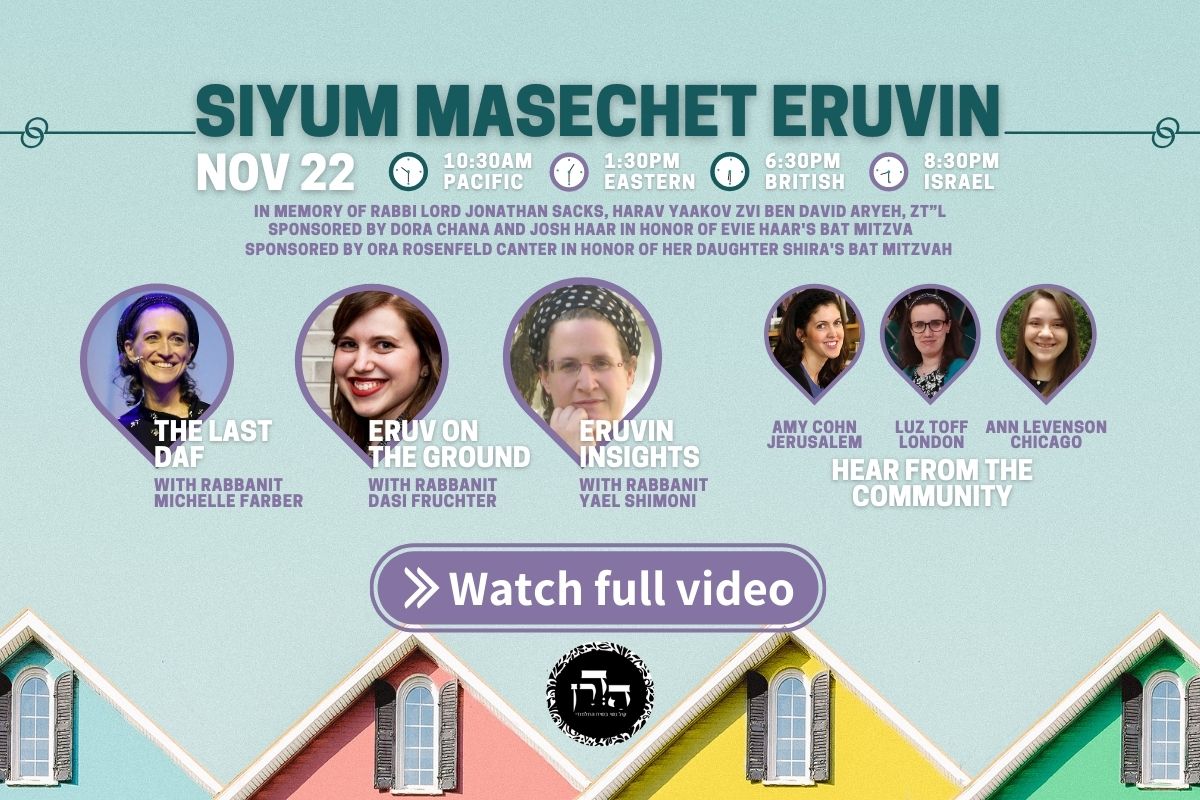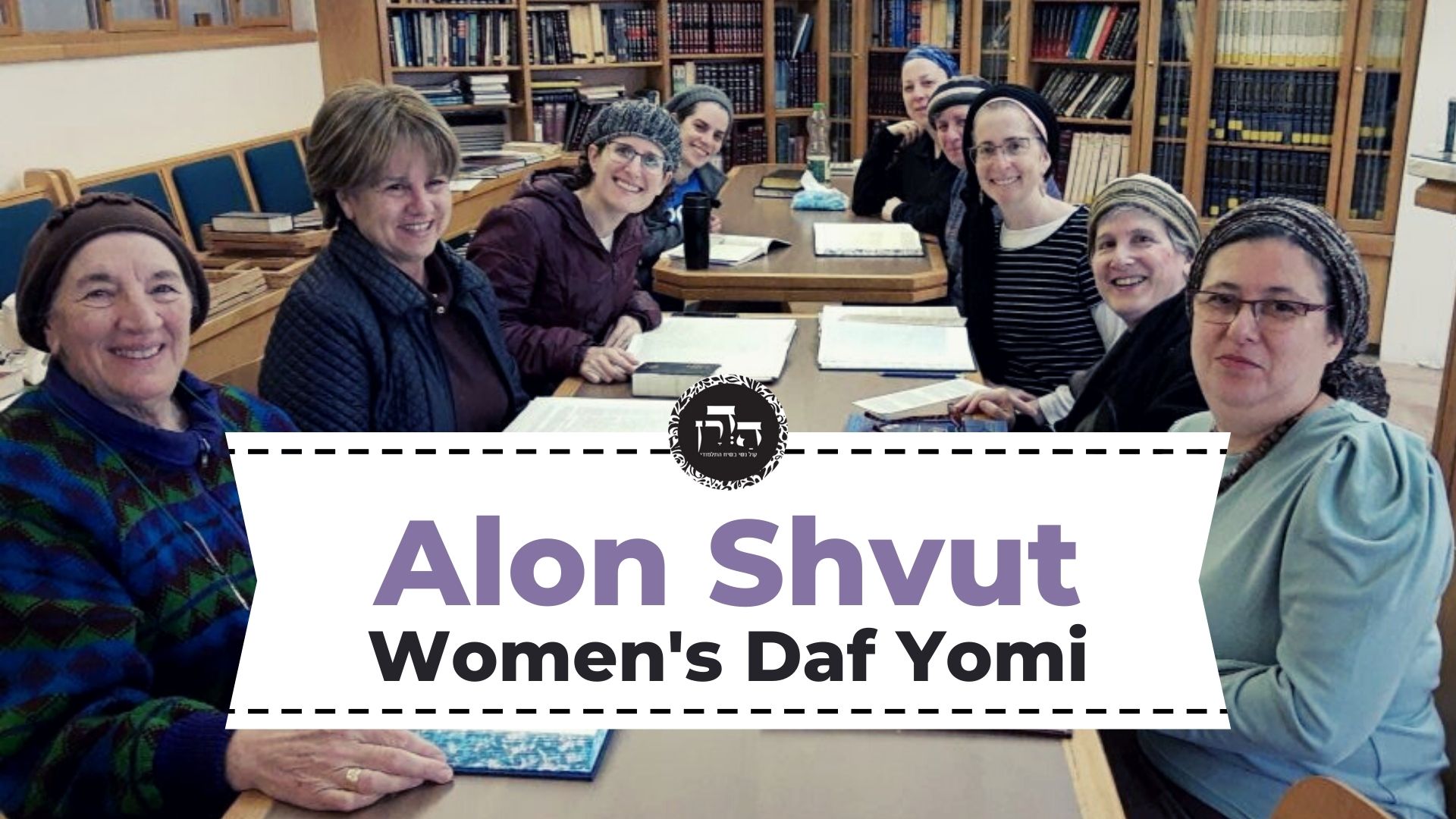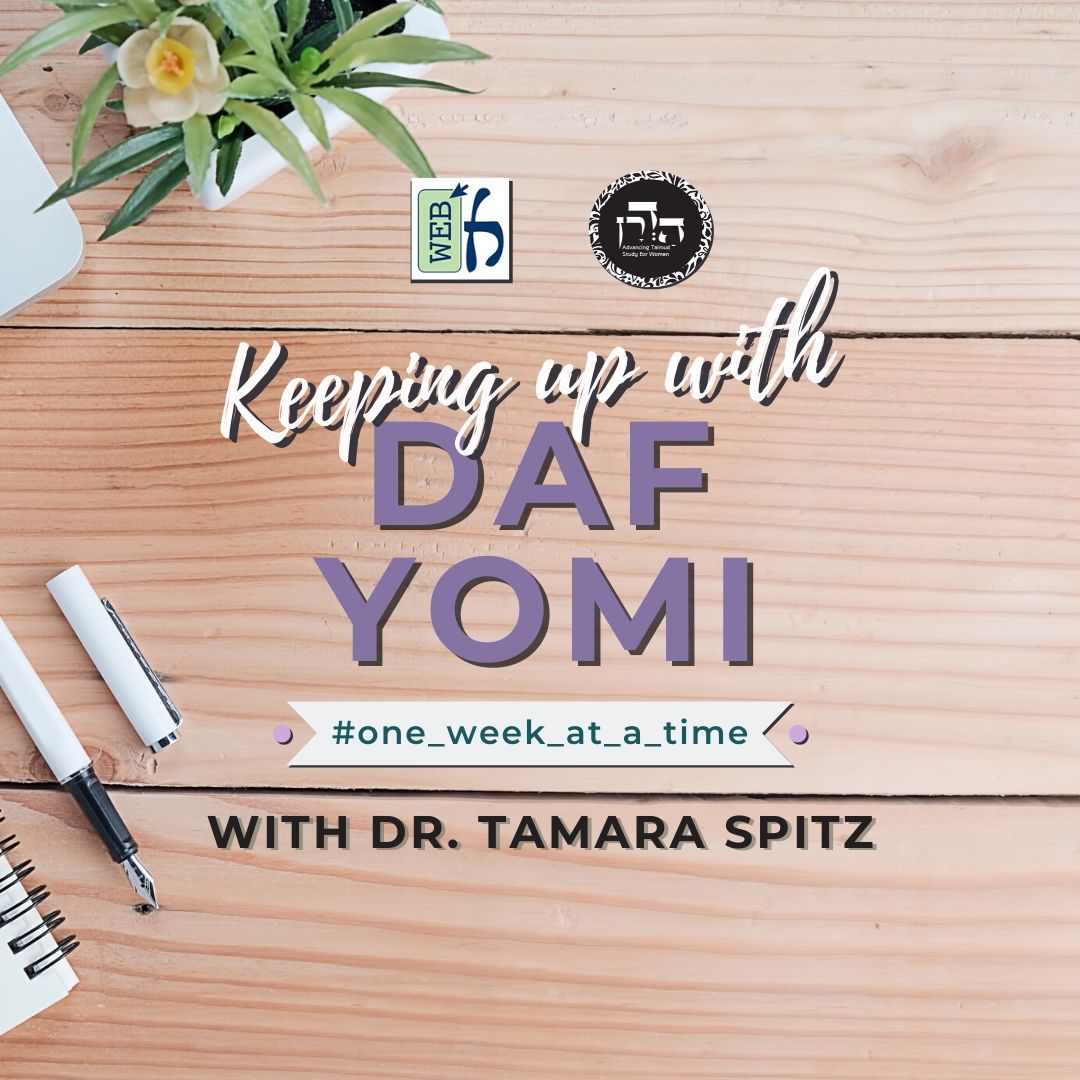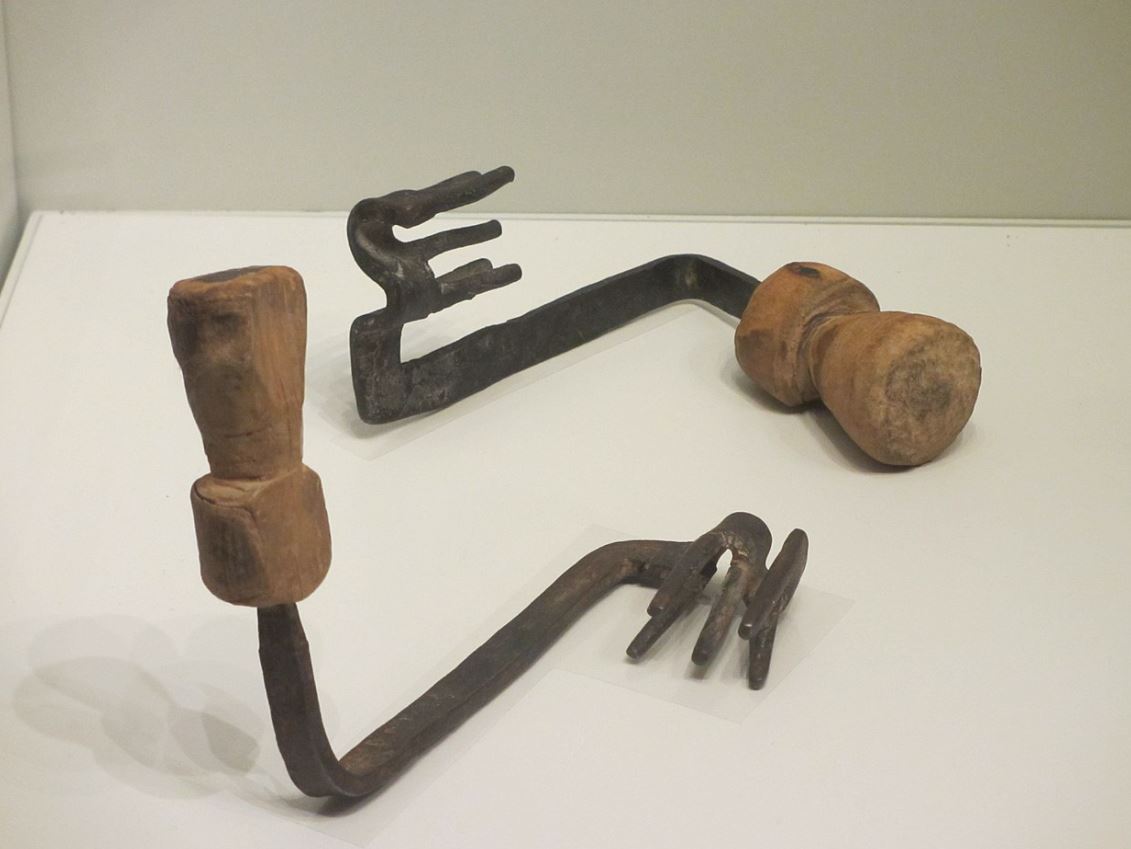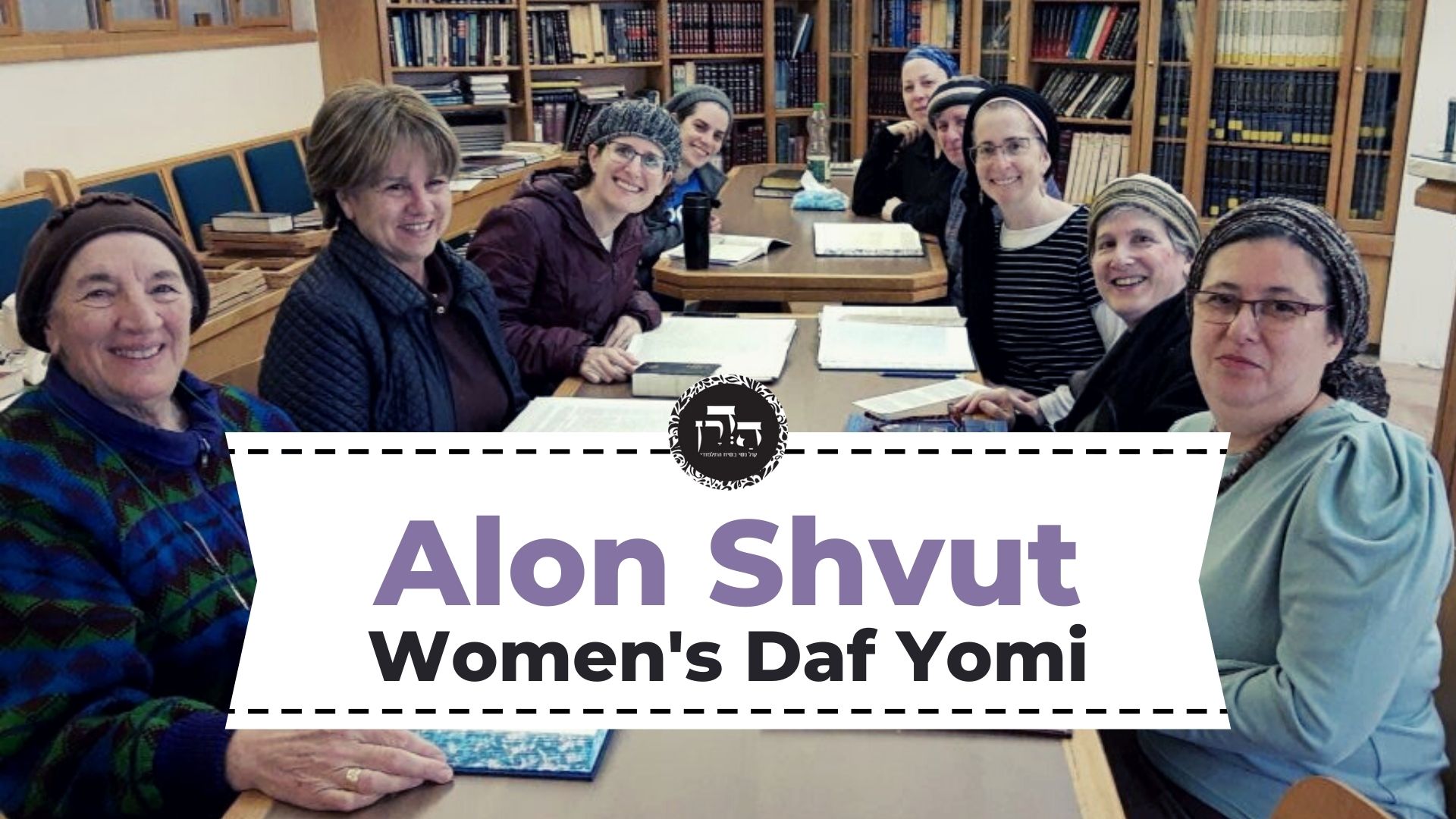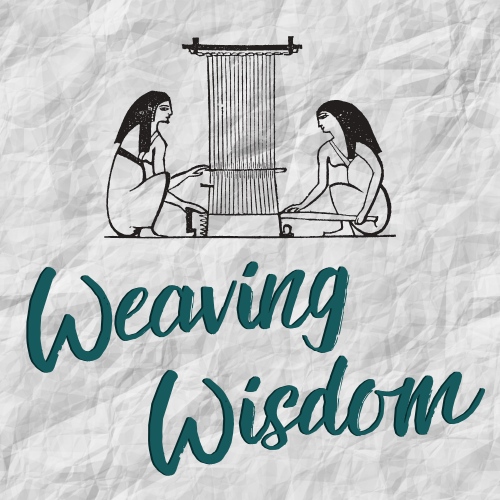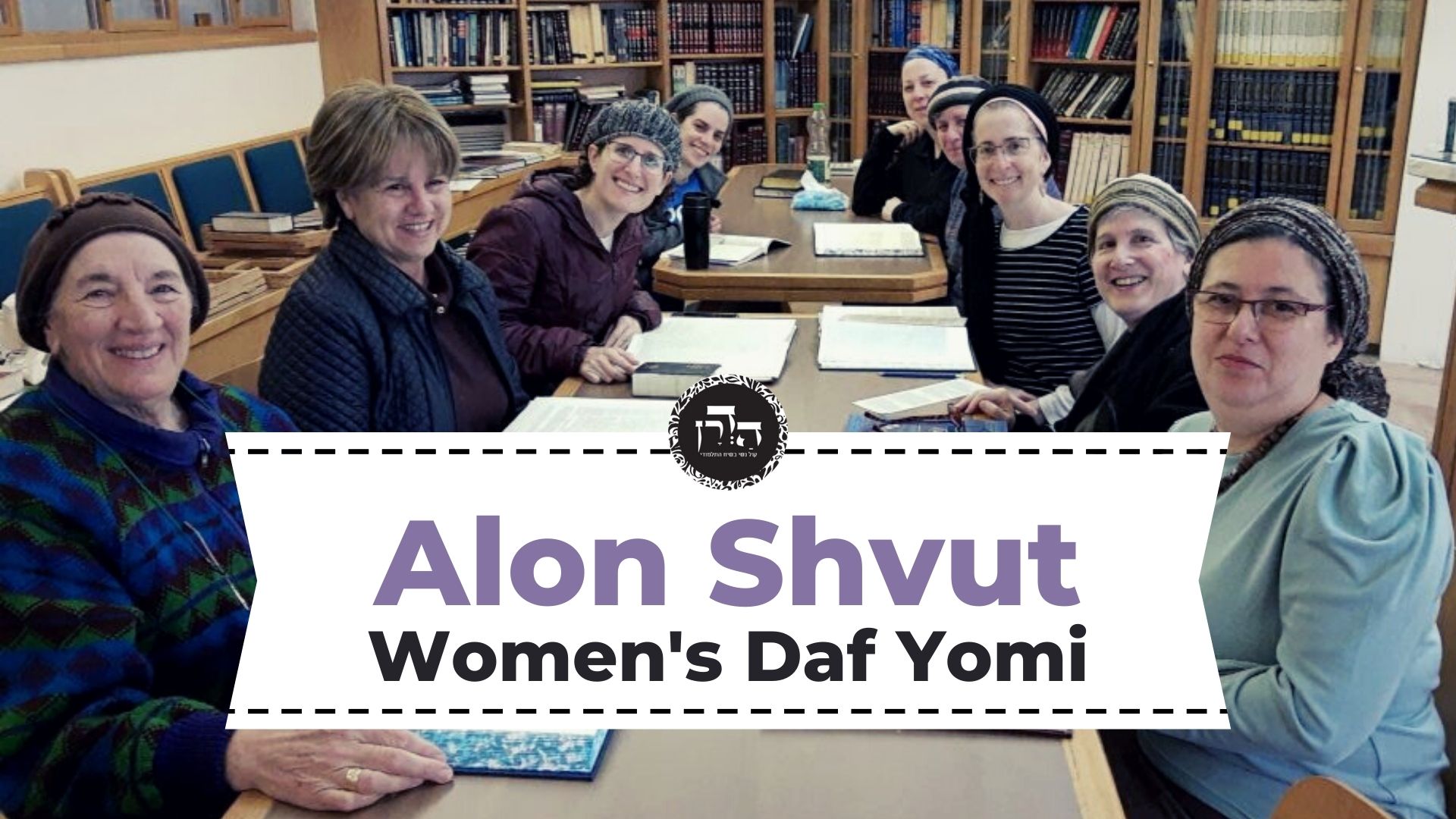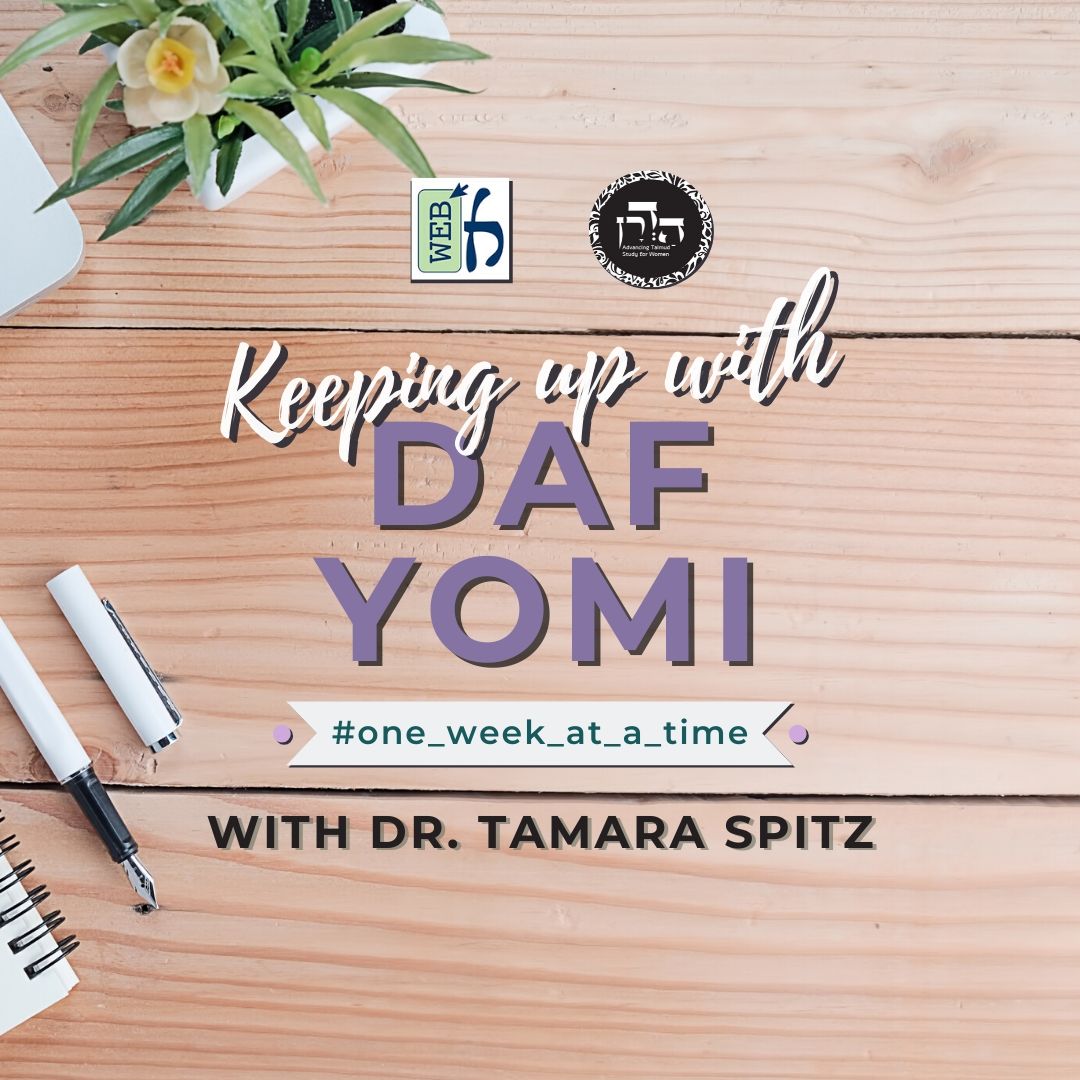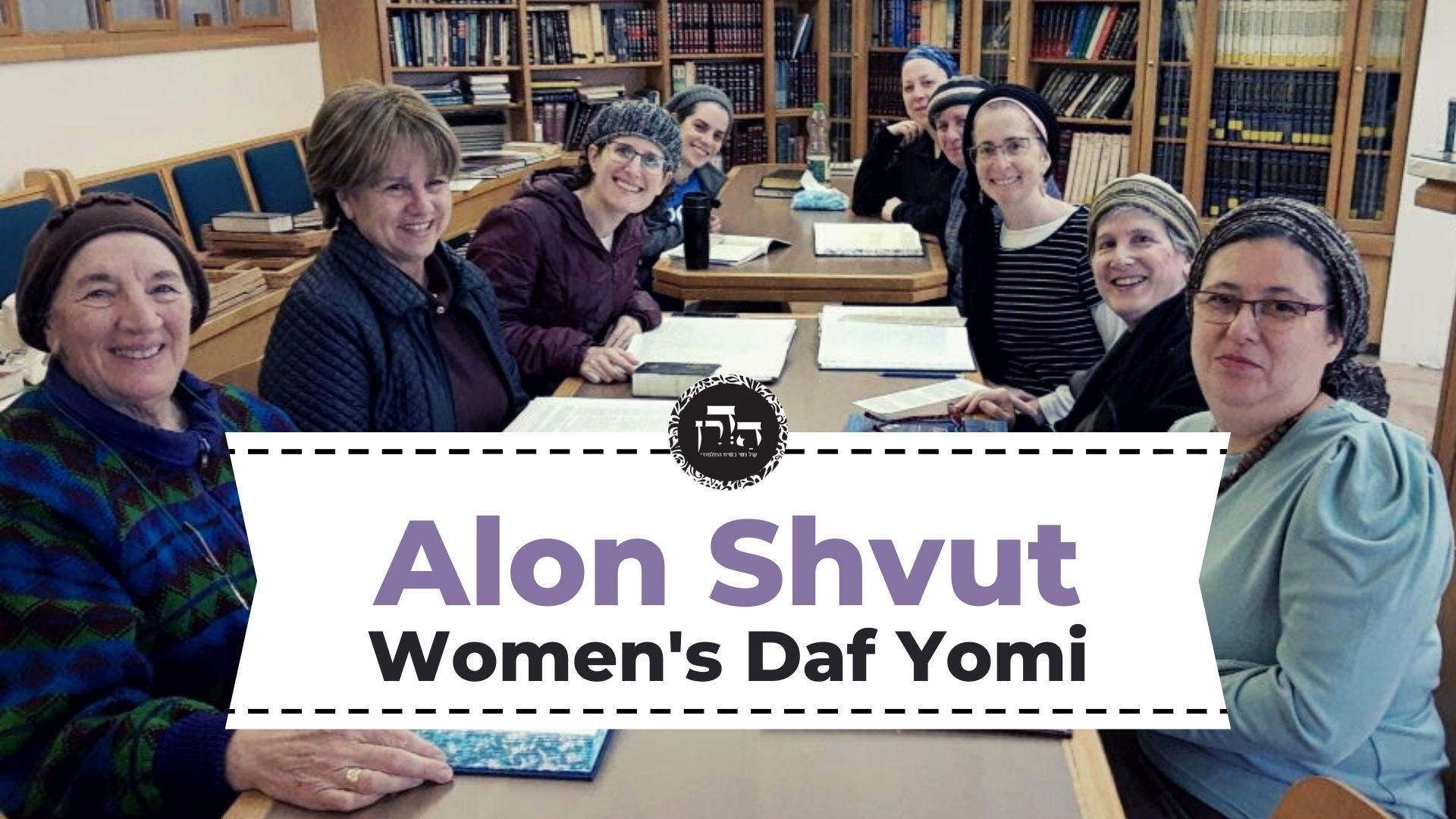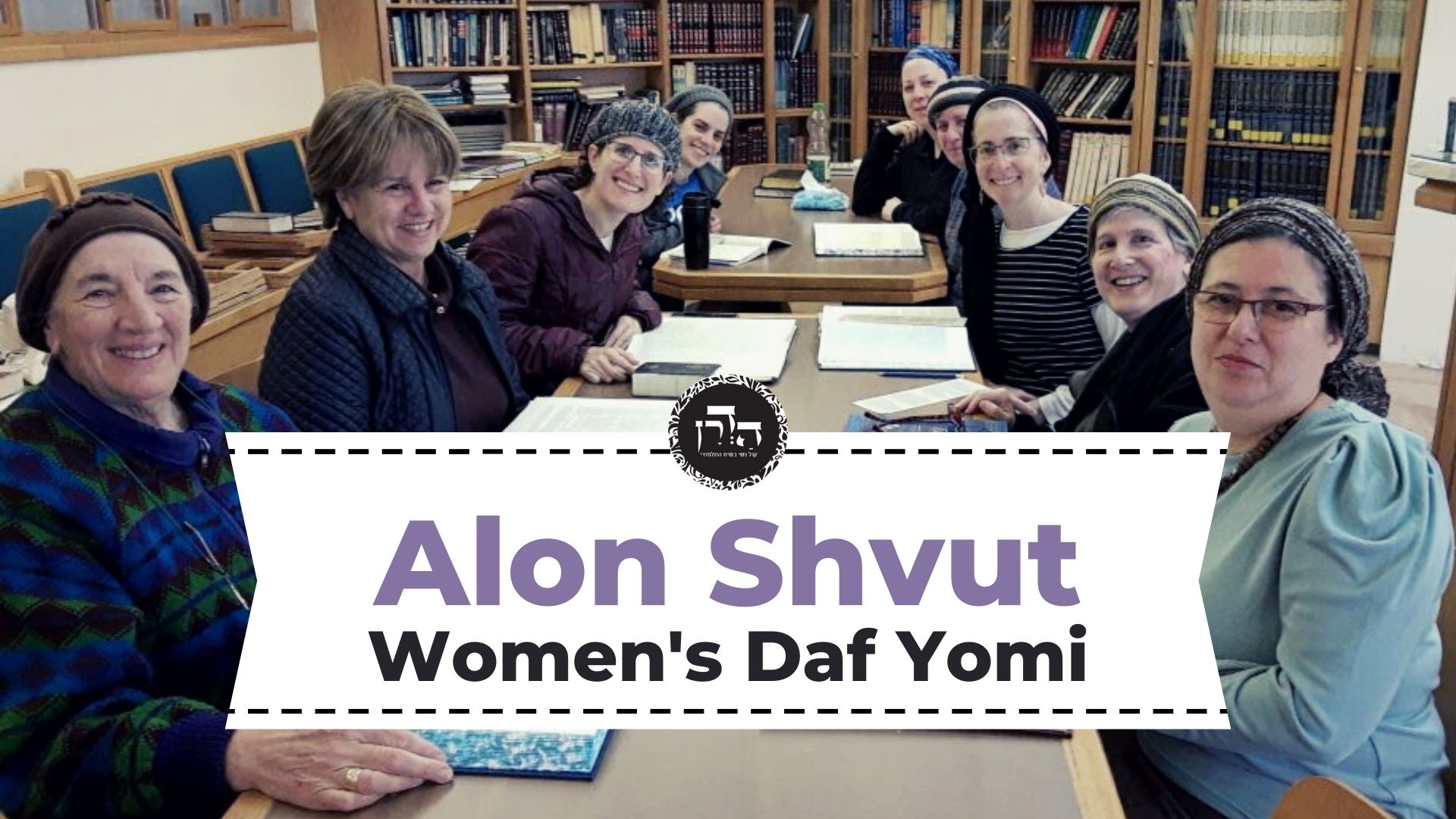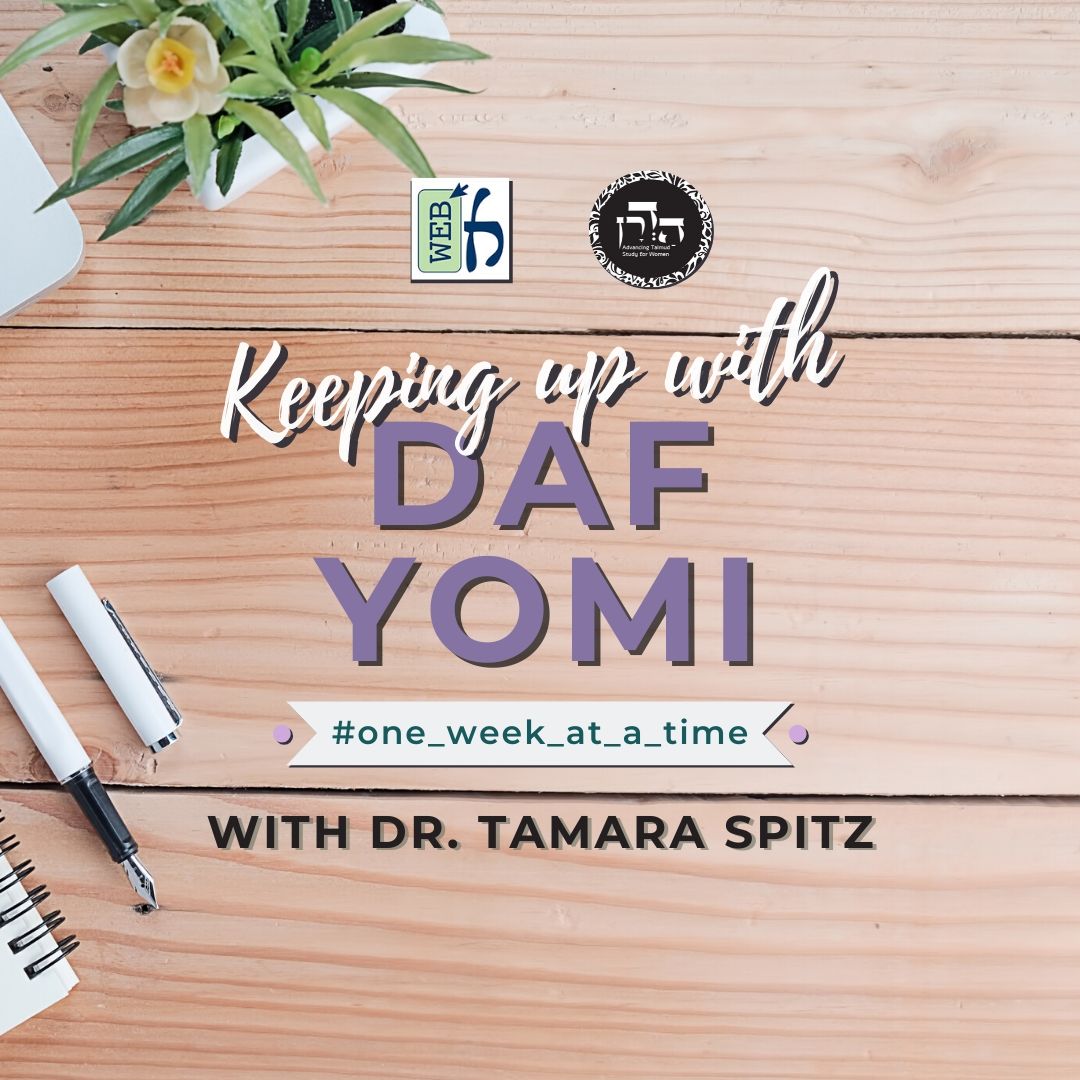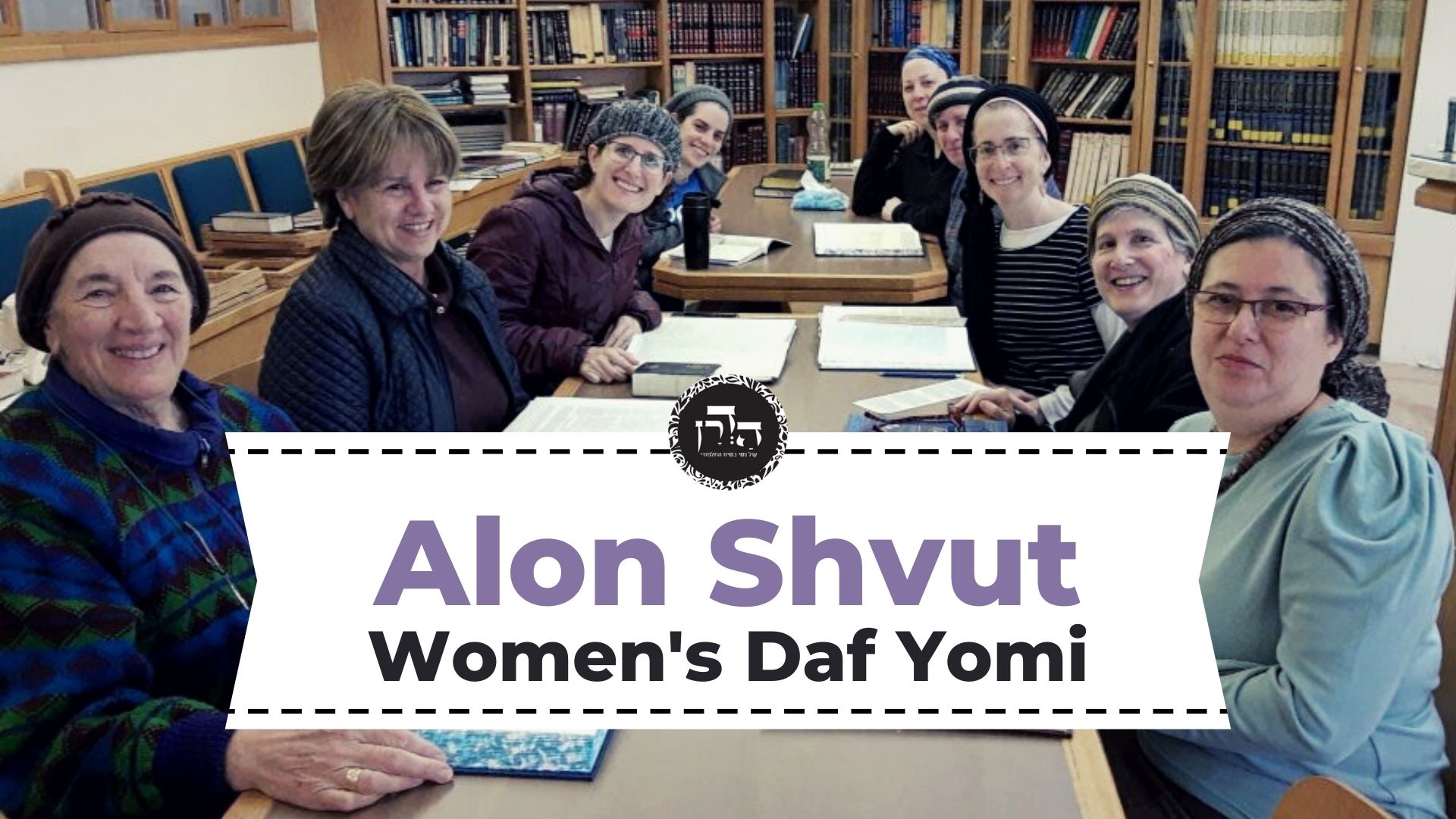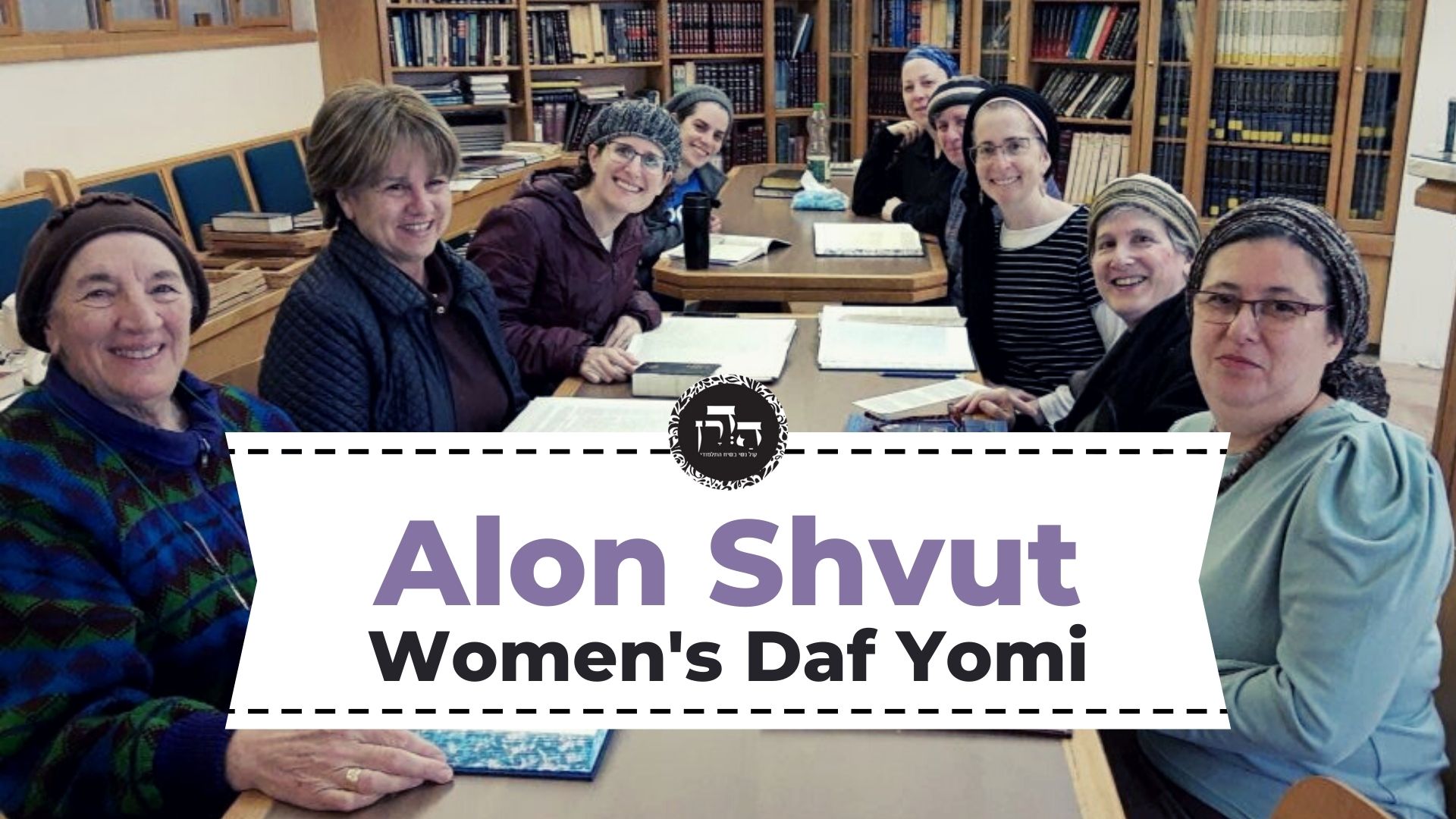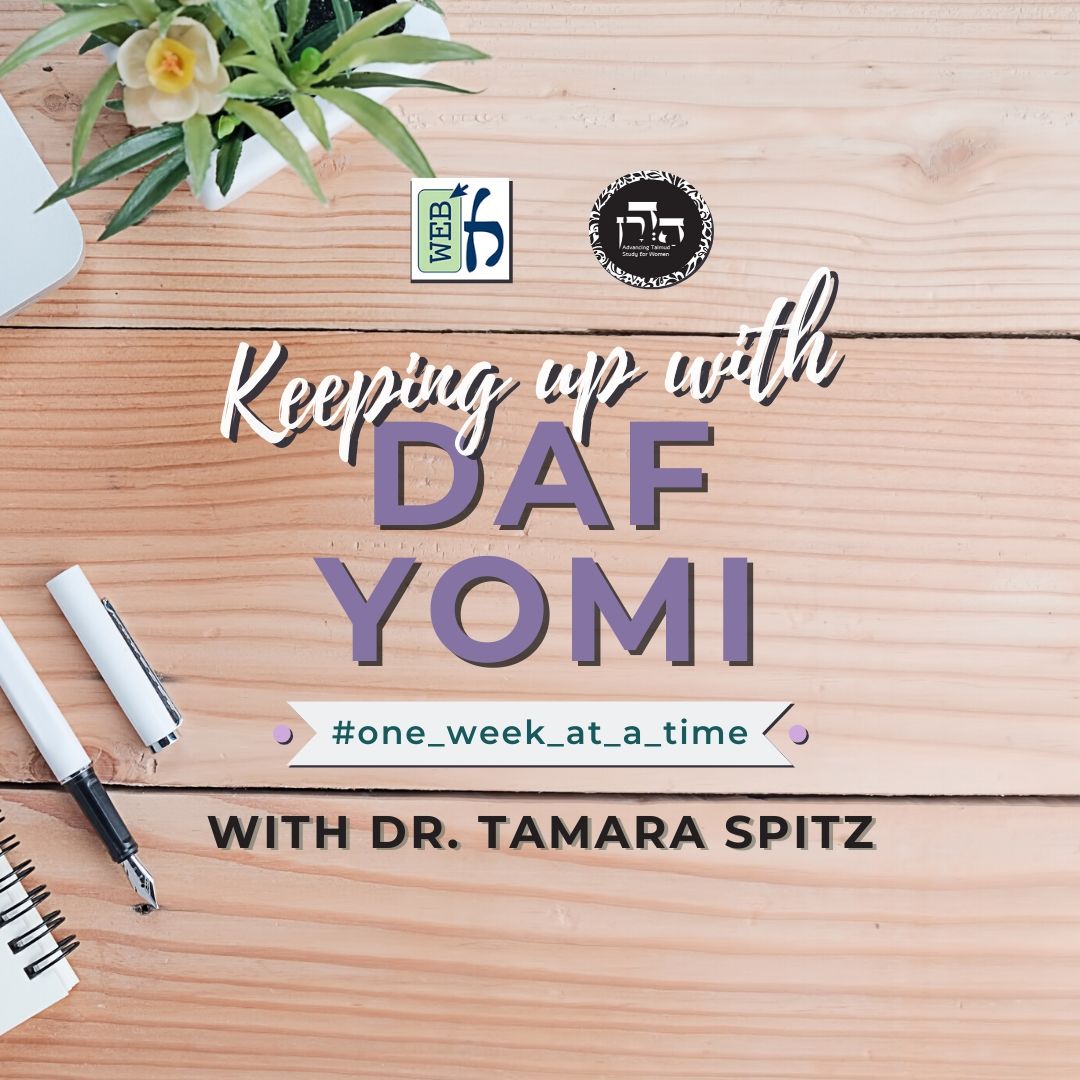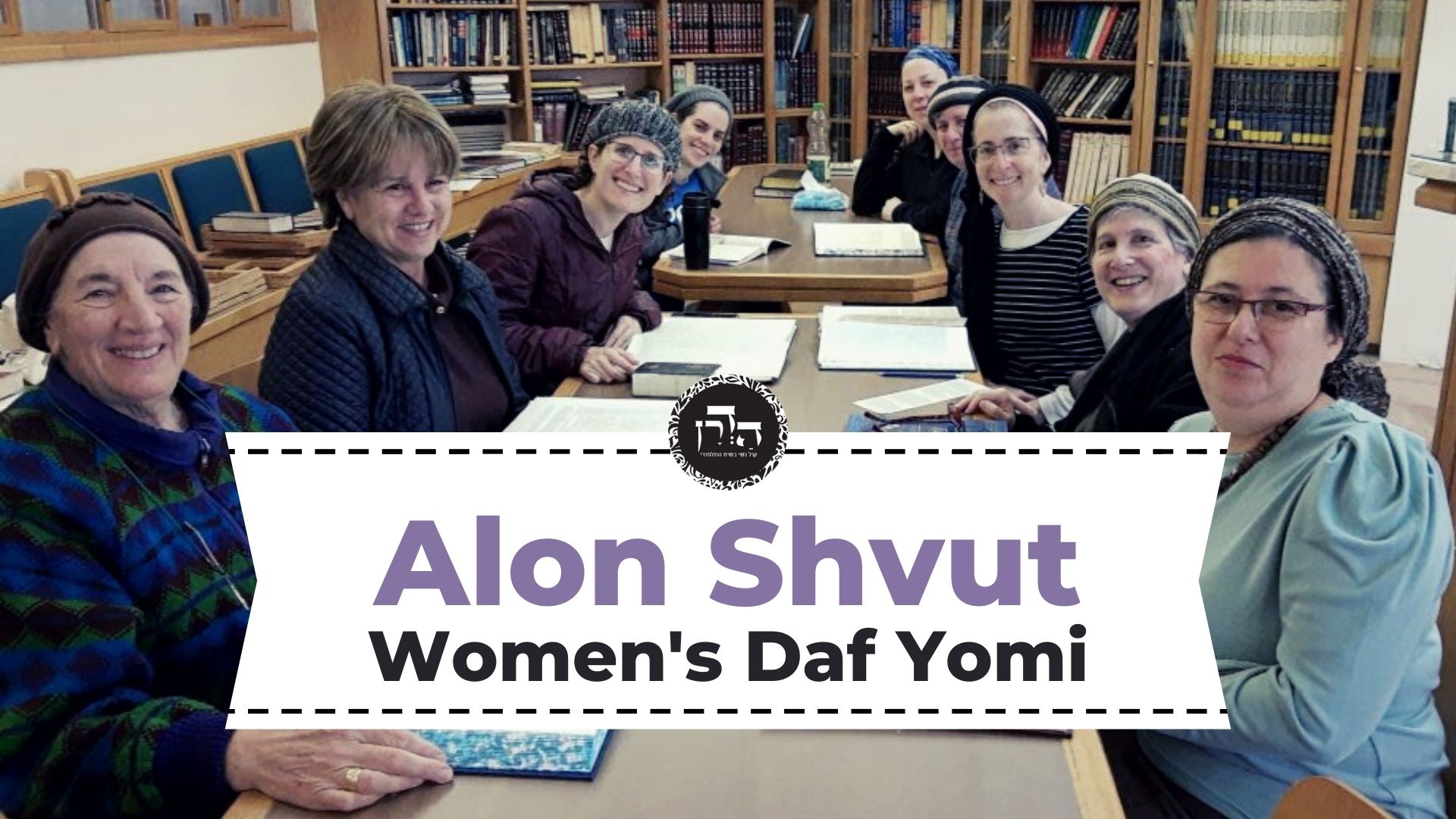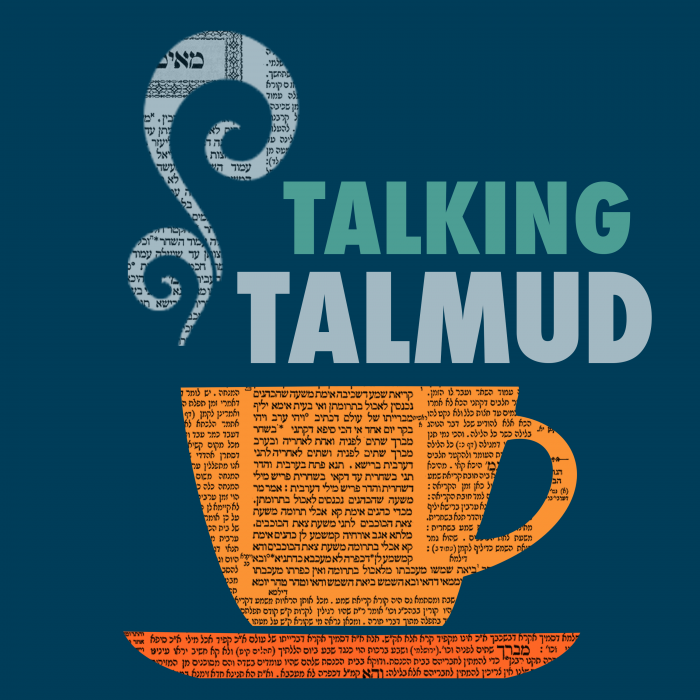Eruvin 30
אֲבָל בִּגְדֵי עֲשִׁירִים לַעֲנִיִּים — לָא.
But the clothing of the wealthy does not need to be three by three handbreadths in order to become ritually impure for the poor because even smaller pieces of cloth are significant for the poor. Therefore, the law with regard to the poor is not determined by the customary practice of the rich. So too, the law of eiruv pertaining to the rest of the world should not be determined by the customary practice of the Persians to eat roasted meat as a food in itself.
וְכִי תֵּימָא: הָכָא לְחוּמְרָא וְהָכָא לְחוּמְרָא, וְהָתַנְיָא, רַבִּי שִׁמְעוֹן בֶּן אֶלְעָזָר אוֹמֵר: מְעָרְבִין לְחוֹלֶה וּלְזָקֵן כְּדֵי מְזוֹנוֹ. וּלְרַעַבְתָן, בִּסְעוּדָה בֵּינוֹנִית שֶׁל כׇּל אָדָם. קַשְׁיָא.
And if you say: Both here the ruling is stringent, and there the ruling is stringent, i.e., with regard to ritual impurity the halakha is stringent with respect to the poor and declares scraps of cloth that are only three by three fingerbreadths impure, but with regard to eiruv the halakha requires enough roasted meat to suffice for two meals as a food in its own right, in accordance with the practice of the Persians, then there is a difficulty: Wasn’t it taught in a baraita that Rabbi Shimon ben Elazar says: One may establish an eiruv for an ill or elderly person with an amount of food that is enough for him for two meals, and if he eats less than the average person due to his sickness or age, a smaller amount of food is required in order to establish an eiruv on his behalf; however, for a glutton, we do not require food in an amount that would satisfy him but merely enough food for two meals measured according to an average meal for the typical person? This indicates that the halakha with respect to an eiruv is lenient and not stringent. The Gemara concludes: Indeed, this is difficult.
וּמִי אָמַר רַבִּי שִׁמְעוֹן בֶּן אֶלְעָזָר הָכִי? וְהָתַנְיָא, רַבִּי שִׁמְעוֹן בֶּן אֶלְעָזָר אוֹמֵר: עוֹג מֶלֶךְ הַבָּשָׁן — פִּיתְחוֹ כִּמְלוֹאוֹ!
The Gemara raises a difficulty with the aforementioned baraita: Did Rabbi Shimon ben Elazar really say this? Wasn’t it taught in another baraita pertaining to the laws of ritual impurity that Rabbi Shimon ben Elazar says: Og, king of the Bashan, or any similar giant, requires an opening as big as his full size? If a person dies in a house and it is not clear how his corpse will be removed, all of the openings in the house are considered ritually impure, as the corpse might be carried out through any one of them. If the corpse can fit through some of the openings but not through others, only the larger openings are ritually impure. Rabbi Shimon ben Elazar says that in the case of a giant the size of Og, king of the Bashan, one opening can only prevent the others from contracting impurity if it is large enough for Og’s corpse to fit through. This indicates that the law is determined by the measure of each particular person and not by some general measure.
וְאַבָּיֵי: הָתָם הֵיכִי לֶיעְבֵּיד, הַדּוֹמֵי נְהַדְּמֵיהּ [וְנַפְּקֵיהּ]?!
The Gemara asks: And what does Abaye say? How does he reconcile his position with regard to an eiruv, which maintains that we follow the customary practice of most of the world and not that of particular locales, with Rabbi Shimon ben Elazar’s ruling with regard to the corpse of a giant? The Gemara answers: There, in the case of a giant, what should we do? Should we cut the corpse into pieces and carry it out? We have no choice but to carry it out through an opening large enough for the corpse to pass through. However, in the case of the food for the two meals of an eiruv, there is no such logistical constraint, and the law should be determined in accordance with the usual practice.
אִיבַּעְיָא לְהוּ: פְּלִיגִי רַבָּנַן עֲלֵיהּ דְּרַבִּי שִׁמְעוֹן בֶּן אֶלְעָזָר, אוֹ לָא? תָּא שְׁמַע, דְּאָמַר רַבָּה בַּר בַּר חָנָה אָמַר רַבִּי יוֹחָנָן: עוֹג מֶלֶךְ הַבָּשָׁן פִּיתְחוֹ בְּאַרְבָּעָה.
A dilemma was raised before the Sages: Do the Rabbis disagree with Rabbi Shimon ben Elazar, or not? Come and hear a proof from that which Rabba bar bar Ḥana said that Rabbi Yoḥanan said: Og, king of the Bashan, requires an opening of four handbreadths in order to save the other openings in the house from becoming ritually impure. This indicates that the Rabbis disagree with Rabbi Shimon ben Elazar.
הָתָם דְּאִיכָּא פְּתָחִים קְטַנִּים טוּבָא, וְאִיכָּא חַד דְּהָוֵי אַרְבָּעָה, דְּוַדַּאי כִּי קָא מְרַוַּח — בְּהָהוּא קָא מְרַוַּח.
The Gemara rejects this proof: There, we are dealing with a case where there are many small openings, and there is only one that is four handbreadths wide. Therefore, it may be assumed with certainty that when one widens one of the openings in order to remove the corpse from the house, he will widen that opening. Consequently, that opening is ritually impure while the others are not. However, if all the openings in the house are equal in size, they are all ritually impure, as we cannot know through which opening the corpse will be carried out.
אָמַר רַב חִיָּיא בַּר רַב אָשֵׁי אָמַר רַב: מְעָרְבִין בְּבָשָׂר חַי. אָמַר רַב שִׁימִי בַּר חִיָּיא: מְעָרְבִין בְּבֵיצִים חַיּוֹת. וְכַמָּה? אָמַר רַב נַחְמָן בַּר יִצְחָק: אַחַת. סִינַי אָמַר: שְׁתַּיִם.
Returning to the laws of eiruv, Rav Ḥiyya bar Rav Ashi said that Rav said: One may establish an eiruv with raw meat because it can be eaten when necessary, even though it is not ordinarily regarded as food. Rav Shimi bar Ḥiyya said: One may also establish an eiruv with raw eggs. The Gemara asks: How many eggs are required for an eiruv? Rav Naḥman bar Yitzḥak said: One. Sinai, a nickname of Rav Yosef, said: Two.
הַנּוֹדֵר מִן הַמָּזוֹן, מוּתָּר בַּמַּיִם כּוּ׳. מֶלַח וּמַיִם הוּא דְּלָא אִיקְּרִי מָזוֹן, הָא כׇּל מִילֵּי אִיקְּרִי מָזוֹן. לֵימָא תֶּיהְוֵי תְּיוּבְתָּא דְּרַב וּשְׁמוּאֵל. דְּרַב וּשְׁמוּאֵל דְּאָמְרִי תַּרְוַיְיהוּ: אֵין מְבָרְכִין ״בּוֹרֵא מִינֵי מְזוֹנוֹת״ אֶלָּא עַל חֲמֵשֶׁת הַמִּינִין בִּלְבַד.
We learned in the mishna: One who vows that nourishment is prohibited to him is permitted to eat water and salt. The Gemara infers from this: It is only salt and water that are not considered nourishment, but all other food items are considered nourishment. Let us say that this is a refutation of the position of Rav and Shmuel. As it was Rav and Shmuel who both said: One only recites the blessing: Who creates the various kinds of nourishment, over the five species of grain alone, but not over other types of food.
וְלָא אוֹתְבִינֵּיהּ חֲדָא זִימְנָא? לֵימָא תֶּיהְוֵי תְּיוּבְתַּיְיהוּ נָמֵי מֵהָא!
The Gemara asks a question: Did we not already refute their position on one occasion from a different source? The Gemara answers: Indeed, we already refuted their view, but let us say that there is a refutation of their position from here as well.
אָמַר רַב הוּנָא: בְּאוֹמֵר ״כׇּל הַזָּן עָלַי״. מַיִם וּמֶלַח הוּא דְּלָא זָיְינִי, הָא כׇּל מִילֵּי זָיְינִי.
Rav Huna said: We can resolve the difficulty from the mishna by saying that it is referring to someone who vows and says: Anything that nourishes is prohibited to me. In that case, it is water and salt that are permitted to him, as they do not nourish, but all other food items are prohibited, as they do nourish. This inclusive formulation includes anything that provides even a small degree of nourishment; but the particular term mazon, nourishment or sustenance, used in the blessing over food, is reserved only for the five species of grain.
וְהָאָמַר רַבָּה בַּר בַּר חָנָה: כִּי הֲוָה אָזֵילְנָא בָּתְרֵיהּ דְּרַבִּי יוֹחָנָן לְמֵיכַל פֵּירֵי דְּגִינּוֹסַר, כִּי הֲוֵינַן בֵּי מְאָה — הֲוָה מְנַקְּטִינַן לְכׇל חַד וְחַד עַשְׂרָה עַשְׂרָה. כִּי הֲוֵינַן בֵּי עַשְׂרָה — הֲוָה מְנַקְּטִינַן לְכׇל חַד וְחַד מְאָה מְאָה. וְכׇל מְאָה מִינַּיְיהוּ (לָא) הֲוֵי מַחֲזִיק לְהוּ צַנָּא בַּת תְּלָתָא סָאוֵי, וַהֲוָה אָכֵיל לְהוּ לְכוּלְּהוֹן, וְאָמַר: שְׁבוּעָתָא דְּלָא טְעִים לִי זִיּוּנָא! אֵימָא: ״מְזוֹנָא״.
The Gemara asks: Didn’t Rabba bar bar Ḥana say: When we were following Rabbi Yoḥanan to eat of the fruits of Genosar, very sweet fruits that grow in the region of the Sea of Galilee, when we were a group of a hundred people, each and every person would take ten fruits; and when we were a group of ten, each and every person would take a hundred fruits for him. And each hundred of these fruits could not fit into a three-se’a basket. And Rabbi Yoḥanan would eat them all and then say: I swear that I have not yet tasted something that nourishes. Didn’t we say that only water and salt are excluded from the category of things that nourish? The Gemara corrects the rendition of the story: Say that he said as follows: I have not tasted sustaining food, but fruit is certainly considered something that nourishes.
אָמַר רַב הוּנָא אָמַר רַב: ״שְׁבוּעָה שֶׁלֹּא אוֹכַל כִּכָּר זוֹ״ — מְעָרְבִין לוֹ בָּהּ. ״כִּכָּר זוֹ עָלַי״ — אֵין מְעָרְבִין לוֹ בָּהּ.
Rav Huna said that Rav said: If one said: I swear that I shall not eat this loaf, one may nonetheless establish an eiruv for him with it because the food used for an eiruv does not have to be edible for the particular individual the eiruv services. However, if one said: This loaf shall be forbidden to me, one may not establish an eiruv for him with it, as this formulation indicates that he is prohibiting himself to use or benefit from the loaf in any manner.
מֵיתִיבִי: הַנּוֹדֵר מִן הַכִּכָּר — מְעָרְבִין לוֹ בָּהּ. מַאי לָאו, דְּאָמַר ״עָלַי״? לָא, דְּאָמַר ״זוֹ״.
The Gemara raises an objection based upon the following baraita: With regard to one who vows not to benefit from a loaf, one may nonetheless establish an eiruv for him with it. What, is it not referring to one who said: This loaf shall be forbidden to me? The Gemara answers: No, the baraita is only is referring to a case where he said: I swear that I shall not eat this loaf.
הָכִי נָמֵי מִסְתַּבְּרָא, דְּקָתָנֵי סֵיפָא: אֵימָתַי, בִּזְמַן שֶׁאָמַר ״שְׁבוּעָה שֶׁלֹּא אֶטְעָמֶנָּה״.
The Gemara comments: So too, it is reasonable to understand the baraita in this fashion, as it was taught in the latter clause: When do we apply this halakha? Only when one said: I swear that I shall not taste it.
אֲבָל אָמַר ״עָלַי״, מַאי? הָכִי נָמֵי דְּאֵין מְעָרְבִין לוֹ בָּהּ? אִי הָכִי, אַדְּתָנֵי ״כִּכָּר זוֹ הֶקְדֵּשׁ״ אֵין מְעָרְבִין לוֹ בָּהּ, לְפִי שֶׁאֵין מְעָרְבִין בַּהֶקְדֵּשׁוֹת — לִיפְלוֹג וְלִיתְנֵי בְּדִידַהּ: בַּמֶּה דְּבָרִים אֲמוּרִים, דְּאָמַר ״זוֹ״, אֲבָל אָמַר ״עָלַי״ — אֵין מְעָרְבִין לוֹ בָּהּ!
The Gemara asks: But if he said: This loaf shall be forbidden to me, what is the halakha? So too, one may not establish an eiruv for him with it. But if so, there is a difficulty. Instead of teaching in the continuation of the baraita that if one said: This loaf is consecrated property, one may not establish an eiruv for him with it, as one may not establish an eiruv with consecrated objects, let him make an internal distinction in the case of a non-sacred loaf itself and state: In what case is this statement said? Only where one said: I swear that I shall not eat this loaf. But if one said: This loaf shall be forbidden to me, one may not establish an eiruv for him with it. This indicates that Rav Huna’s understanding of the baraita is incorrect.
אָמַר לְךָ רַב הוּנָא: אֶלָּא מַאי, כֹּל הֵיכָא דְּאָמַר ״עָלַי״ מְעָרְבִין? קַשְׁיָא רֵישָׁא?
Rav Huna could have said to you: Rather, what would you say, that wherever one said: This loaf shall be forbidden to me, one may establish an eiruv for him with it? If so, there is a difficulty from the first clause of the baraita, which states: When do we say this? Only when one said: I swear that I shall not taste it. That indicates that if one said: This loaf shall be forbidden to me, one may not establish an eiruv for him with it.
חַסּוֹרֵי מִיחַסְּרָא, וְהָכִי קָתָנֵי: הַנּוֹדֵר מִן הַכִּכָּר מְעָרְבִין לוֹ בָּהּ, וַאֲפִילּוּ אָמַר ״עָלַי״ — נַעֲשָׂה כְּאוֹמֵר: שְׁבוּעָה שֶׁלֹּא אֶטְעָמֶנָּה.
The Gemara answers that the baraita is incomplete, and it teaches the following: With regard to one who vows not to benefit from a loaf, one may nonetheless establish an eiruv for him with it. And even if one said: This loaf shall be forbidden to me, it is as though he said: I swear that I shall not taste it. Therefore, the loaf itself is only forbidden to him as food, but he can use it for the purpose of an eiruv.
מִכׇּל מָקוֹם קַשְׁיָא לְרַב הוּנָא! הוּא דְּאָמַר כְּרַבִּי אֱלִיעֶזֶר. דְּתַנְיָא, רַבִּי אֱלִיעֶזֶר אוֹמֵר: ״שְׁבוּעָה שֶׁלֹּא אוֹכַל כִּכָּר זוֹ״ — מְעָרְבִין לוֹ בָּהּ. ״כִּכָּר זוֹ עָלַי״ — אֵין מְעָרְבִין לוֹ בָּהּ.
The Gemara comments: Nevertheless, the difficulty remains according to the opinion of Rav Huna. The Gemara answers: He stated his view in accordance with the opinion of Rabbi Eliezer; as it was taught in a baraita that Rabbi Eliezer says: If one said: I swear that I shall not eat this loaf, one may establish an eiruv for him with it; but if he said: This loaf shall be forbidden to me, one may not establish an eiruv for him with it.
וּמִי אָמַר רַבִּי אֱלִיעֶזֶר הָכִי? וְהָתַנְיָא, זֶה הַכְּלָל: אָדָם אוֹסֵר עַצְמוֹ בְּאוֹכֶל — מְעָרְבִין לוֹ בָּהּ. אוֹכֶל הַנֶּאְסָר לוֹ לְאָדָם — אֵין מְעָרְבִין לוֹ בָּהּ. רַבִּי אֱלִיעֶזֶר אוֹמֵר: ״כִּכָּר זוֹ עָלַי״ — מְעָרְבִין לוֹ בָּהּ. ״כִּכָּר זוֹ הֶקְדֵּשׁ״ — אֵין מְעָרְבִין לוֹ בָּהּ, לְפִי שֶׁאֵין מְעָרְבִין לוֹ בַּהֶקְדֵּשׁוֹת!
The Gemara asks: Did Rabbi Eliezer really say this? Wasn’t it taught in a baraita: This is the principle: With regard to a person who prohibits himself from eating a particular food, e.g., if one said: I swear that I shall not eat this loaf, one may establish an eiruv for him with that loaf. However, if the food was prohibited to a person, e.g., if he said: This loaf shall be forbidden to me, one may not establish an eiruv for him with it. Rabbi Eliezer says: If he said: This loaf shall be forbidden to me, one may establish an eiruv for him with it. However, if he said: This loaf is consecrated property, one may not establish an eiruv for him with it, as one may not establish an eiruv for him with consecrated objects. Therefore, Rabbi Eliezer does not distinguish between the two differently worded types of vows, but between a vow and consecration.
תְּרֵי תַנָּאֵי וְאַלִּיבָּא דְּרַבִּי אֱלִיעֶזֶר.
The Gemara answers: It must be explained that these are two tanna’im who both held according to Rabbi Eliezer. Two later tanna’im disagreed with each other in reporting Rabbi Eliezer’s opinion.
מְעָרְבִין לַנָּזִיר בְּיַיִן כּוּ׳. מַתְנִיתִין דְּלָא כְּבֵית שַׁמַּאי. דְּתַנְיָא, בֵּית שַׁמַּאי אוֹמְרִים: אֵין מְעָרְבִין לַנָּזִיר בְּיַיִן וּלְיִשְׂרָאֵל בִּתְרוּמָה, בֵּית הִלֵּל אוֹמְרִים: מְעָרְבִין לַנָּזִיר בְּיַיִן וּלְיִשְׂרָאֵל בִּתְרוּמָה. אָמְרוּ לָהֶן בֵּית הִלֵּל לְבֵית שַׁמַּאי: אִי אַתֶּם מוֹדִים
We learned in the mishna: One may establish an eiruv for a nazirite with wine and for an Israelite with teruma, even though they themselves may not partake of these foods. The Gemara comments: The mishna was not taught in accordance with the opinion of Beit Shammai, as it was taught in a baraita that Beit Shammai say: One may not establish an eiruv for a nazirite with wine and for an Israelite with teruma. Beit Hillel disagree and say: One may establish an eiruv for a nazirite with wine and for an Israelite with teruma. Beit Hillel said to Beit Shammai: Do you not concede
שֶׁמְּעָרְבִין לְגָדוֹל בְּיוֹם הַכִּפּוּרִים!
that one may establish an eiruv for an adult even on Yom Kippur, despite the fact that he may not eat on Yom Kippur? It must be because eating is permitted to a minor.
אָמְרוּ לָהֶן: אֲבָל! אָמְרוּ לָהֶן: כְּשֵׁם שֶׁמְּעָרְבִין לַגָּדוֹל בְּיוֹם הַכִּפּוּרִים, כֵּן מְעָרְבִין לַנָּזִיר בְּיַיִן וּלְיִשְׂרָאֵל בִּתְרוּמָה.
Beit Shammai said to them: Indeed [aval], it is so. Beit Hillel said to them: Just as one may establish an eiruv for an adult on Yom Kippur, so too, one may establish an eiruv for a nazirite with wine and for an Israelite with teruma.
וּבֵית שַׁמַּאי: הָתָם — אִיכָּא סְעוּדָה הָרְאוּיָה מִבְּעוֹד יוֹם, הָכָא — לֵיכָּא סְעוּדָה הָרְאוּיָה מִבְּעוֹד יוֹם.
And how do Beit Shammai explain the difference between these cases? The Gemara explains: There, with regard to Yom Kippur, there is at least a meal that was fit to be eaten by that person while it was still day, on the eve of Yom Kippur. Here, in the cases of wine for a nazirite and teruma for an Israelite, there is no meal that was fit to be eaten by them while it was still day, on Friday.
כְּמַאן? דְּלָא כַּחֲנַנְיָה. דְּתַנְיָא, חֲנַנְיָה אוֹמֵר: כׇּל עַצְמָן שֶׁל בֵּית שַׁמַּאי לֹא הָיוּ מוֹדִים בְּעֵירוּב עַד שֶׁיּוֹצִיא מִטָּתוֹ וְכׇל כְּלֵי תַּשְׁמִישָׁיו לְשָׁם.
The Gemara asks: In accordance with whose opinion was that entire baraita stated? It was not taught in accordance with the opinion of Ḥananya, as it was taught in another baraita that Ḥananya says: The whole view of Beit Shammai, i.e., their fundamental position, was that they did not concede to the very possibility of joining Shabbat borders [eiruv teḥumin] by simply placing food in a particular location. Rather, they hold that one’s Shabbat residence remains the same until he literally moves his residence, such as if he carries out his bed and his utensils to there, to a new location.
כְּמַאן אָזְלָא הָא דְּתַנְיָא: עֵירַב בִּשְׁחוֹרִים לֹא יֵצֵא בִּלְבָנִים, בִּלְבָנִים לֹא יֵצֵא בִּשְׁחוֹרִים. כְּמַאן? אָמַר רַב נַחְמָן בַּר יִצְחָק: חֲנַנְיָה הִיא, וְאַלִּיבָּא דְּבֵית שַׁמַּאי.
The Gemara asks: In accordance with whose opinion is the ruling that was taught in the following baraita: If one established an eiruv in black clothing, and Shabbat commenced while he was still dressed those clothes, he may not go out in white clothing. If one established the eiruv while dressed in white, he may not go out in black. According to whose opinion is this halakha? Rav Naḥman bar Yitzḥak said: It is the opinion of Ḥananya, and it is in accordance with the opinion of Beit Shammai.
וְלַחֲנַנְיָה, בִּשְׁחוֹרִים הוּא דְּלֹא יֵצֵא, הָא בִּלְבָנִים יֵצֵא? הָאָמַר עַד שֶׁיּוֹצִיא מִטָּתוֹ וּכְלֵי תַּשְׁמִישָׁיו לְשָׁם! הָכִי קָאָמַר: עֵירַב בִּלְבָנִים וְהוּצְרַךְ לִשְׁחוֹרִים, אַף בִּלְבָנִים לֹא יֵצֵא. כְּמַאן? אָמַר רַב נַחְמָן בַּר יִצְחָק: חֲנַנְיָה הִיא, וְאַלִּיבָּא דְּבֵית שַׁמַּאי.
The Gemara asks: And according to the opinion of Ḥananya, is it with black clothing that he may not go out, but in white clothing he may go out? Didn’t Ḥananya say that according to Beit Shammai an eiruv is not effective at all until one carries out his bed and his utensils to the place he wishes to establish as his residence? The Gemara answers: The wording of the baraita must be emended and this is what it said: If one established an eiruv while dressed in white clothing, and he needed black clothing but did not have it with him, he may not go out even in white clothing. In accordance with whose opinion was this baraita taught? Rav Naḥman bar Yitzḥak said: It is the opinion of Ḥananya, and it is in accordance with the opinion of Beit Shammai.
סוֹמְכוֹס אוֹמֵר בְּחוּלִּין. וְאִילּוּ לַנָּזִיר בְּיַיִן לָא פְּלִיג, מַאי טַעְמָא — אֶפְשָׁר דְּמִתְּשִׁיל אַנְּזִירוּתֵיהּ.
We learned in the mishna: Summakhos disagrees and says: One may not establish an eiruv for an Israelite with teruma, but only with regular, non-sacred food items. The Gemara notes: But with regard to the mishna’s ruling that an eiruv may be established for a nazirite with wine, Summakhos does not appear to disagree. What is the reason for the distinction? The Gemara explains: A nazirite can ask a Sage to annul his vow and release him from his nazirite status, and then he himself will be able to drink the wine.
אִי הָכִי, תְּרוּמָה נָמֵי אֶפְשָׁר דְּמִיתְּשִׁיל עִילָּוָיהּ? אִי מִתְּשִׁיל עֲלַהּ — הָדְרָא לְטִיבְלָא.
The Gemara asks: If so, in the case of teruma as well, one can ask a Sage to annul its status. Teruma is consecrated through a verbal declaration by the one separating it, and that declaration, like other consecrations and vows, can be nullified by a Sage. The Gemara answers: Such a course of action would not help. If one asks a Sage to annul his declaration that turned the produce into teruma, the produce will return to its status as tevel, produce from which the requisite dues and tithes were not separated, and he will still be prohibited to consume it.
וְלַיפְרוֹשׁ עֲלַהּ מִמָּקוֹם אַחֵר? לָא נֶחְשְׁדוּ חֲבֵירִים לִתְרוֹם שֶׁלֹּא מִן הַמּוּקָּף.
The Gemara asks: Let him separate teruma for that produce from produce located somewhere else and thus permit it to be eaten. The Gemara answers: Ḥaverim, members of a group dedicated to the precise observance of mitzvot, are not suspected of separating teruma from produce that is not situated near the produce it comes to exempt, as this is prohibited ab initio.
וְלַפְרוֹשׁ עֲלַהּ מִינֵּיהּ וּבֵיהּ! דְּלֵית בַּהּ שִׁיעוּרָא.
The Gemara asks: Let him separate teruma from the produce used for the eiruv itself and consequently permit the rest of the produce to be eaten. The Gemara answers: We are dealing with a case where, after removing teruma, it would not contain the amount required for an eiruv, i.e., one would be left with less than the quantity of food sufficient for two meals.
וּמַאי פַּסְקָא? אֶלָּא, סוֹמְכוֹס סָבַר לַהּ כְּרַבָּנַן דְּאָמְרִי: כׇּל דָּבָר שֶׁהוּא מִשּׁוּם שְׁבוּת גָּזְרוּ עָלָיו בֵּין הַשְּׁמָשׁוֹת.
The Gemara asks: What makes it necessary to say that the mishna is referring to this very unique case? Rather, we must retract all that was stated above and say as follows: Summakhos agrees with the opinion of the Rabbis, who say: Anything that is prohibited on Shabbat due to a rabbinic decree [shevut], the Sages issued the decree to apply even during twilight. Even though this period is of questionable status with regard to whether it is day or night, the Shabbat restrictions instituted by the Sages apply then as they do on Shabbat itself. Consequently, since it is prohibited to separate teruma on Shabbat, it is prohibited during the twilight period as well. Therefore, during twilight, when the eiruv would go into effect, it is impossible to cause it to become permitted to an Israelite.
כְּמַאן אָזְלָא הָא דִּתְנַן: יֵשׁ שֶׁאָמְרוּ הַכֹּל לְפִי מַה שֶּׁהוּא אָדָם. מְלֹא קוּמְצוֹ מִנְחָה, וּמְלֹא חׇפְנָיו קְטֹרֶת, וְהַשּׁוֹתֶה מְלֹא לוּגְמָיו בְּיוֹם הַכִּפּוּרִים, וּבִמְזוֹן שְׁתֵּי סְעוּדוֹת לְעֵירוּב. כְּמַאן? אָמַר רַבִּי זֵירָא: סוֹמְכוֹס הִיא, דְּאָמַר: מַאי דַּחֲזֵי לֵיהּ בָּעִינַן.
The Gemara now asks: In accordance with whose opinion is the ruling that we learned in the following mishna: There are halakhot with regard to which they stated that measures are all in accordance with the particular person involved, e.g., the handful of flour that a priest scoops out from a meal-offering, and the handfuls of incense the High Priest would offer on Yom Kippur, and one who drinks a cheekful on Yom Kippur, and with regard to the measure of two meals’ worth of nourishment for an eiruv. All these measures are determined by the particular individual involved. In accordance with whose opinion is this halakha? Rabbi Zeira said: It is in accordance with the opinion of Summakhos, who said: We require that which is fit for him, the particular individual, and we do not follow a standard measure.
לֵימָא פְּלִיגָא אַדְּרַבִּי שִׁמְעוֹן בֶּן אֶלְעָזָר, דְּתַנְיָא, רַבִּי שִׁמְעוֹן בֶּן אֶלְעָזָר אוֹמֵר: מְעָרְבִין לְחוֹלֶה וּלְזָקֵן כְּדֵי מְזוֹנוֹ, וּלְרַעַבְתָן בִּסְעוּדָה בֵּינוֹנִית שֶׁל כׇּל אָדָם!
The Gemara suggests: Let us say that the aforementioned mishna disagrees with the opinion of Rabbi Shimon ben Elazar. As it was taught in a baraita: Rabbi Shimon ben Elazar says: One may establish an eiruv for an ill or elderly person with an amount of food that is enough for him for two meals; and if he eats less than the average amount due to his sickness or age, a smaller amount of food is sufficient. But for a glutton we do not require food in an amount that would satisfy him; we measure on the basis of an average meal for the typical person.
תַּרְגּוּמָא, אַחוֹלֶה וְזָקֵן. אֲבָל רַעַבְתָן, בָּטְלָה דַּעְתּוֹ אֵצֶל כׇּל אָדָם.
The Gemara answers: When the mishna says that the measure of food for two meals is determined by the particular person involved, interpret that as referring to an ill or elderly person. But with regard to a glutton, we do not determine the measure of food by his standard for a different reason, namely because his opinion is rendered irrelevant by the opinions of all other people. Therefore, there is no reason to be stringent with him and determine the measure according to his particular needs.
וְלַכֹּהֵן בְּבֵית הַפְּרָס. דְּאָמַר רַב יְהוּדָה אָמַר שְׁמוּאֵל: מְנַפֵּחַ אָדָם בֵּית הַפְּרָס וְהוֹלֵךְ. רַבִּי יְהוּדָה בַּר אַמֵּי מִשְּׁמֵיהּ דְּרַב יְהוּדָה אָמַר: בֵּית הַפְּרָס שֶׁנִּידַּשׁ — טָהוֹר.
We learned in the mishna: One may establish an eiruv for a priest in a beit haperas, an area in which there is doubt concerning the location of a grave or a corpse. The Gemara explains that the reason for this is as Rav Yehuda said that Shmuel said: In a time of need a person may blow on the dust in a beit haperas before taking each step, so that if there is a bone beneath the dust he will expose it and avoid it, and he may thus walk across the area. Similarly, Rabbi Yehuda bar Ami said in the name of Rav Yehuda: A beit haperas that has been trodden underfoot, creating a path, is pure, as we assume that it no longer contains any bones as large as a kernel of barley. Both of these statements indicate that the ritual impurity of a beit haperas is a stringency decreed by the Sages. Therefore, since there is a way to avoid becoming ritually impure there, even a priest may place his eiruv in a beit haperas.
רַבִּי יְהוּדָה אוֹמֵר: אַף בֵּית הַקְּבָרוֹת. תָּנָא: מִפְּנֵי שֶׁיָּכוֹל לָחוֹץ וְלֵילֵךְ בְּשִׁידָּה תֵּיבָה וּמִגְדָּל. קָא סָבַר: אֹהֶל זָרוּק שְׁמֵיהּ אֹהֶל.
We learned in the mishna that Rabbi Yehuda says: An eiruv may be established for a priest even in a cemetery, an area which the priest may not enter by Torah law. It was taught: This is permitted because the priest can interpose and walk between the graves inside a carriage, a crate, or a cupboard. These containers do not contract impurity because of their large size, and anything found inside of them remains pure. From here we see that he holds the following: A moving tent is called a tent, and therefore the carriage, box, or cupboard are also considered tents. They shield a person carried in them from the impurity imparted by the graves in a cemetery.
וּבִפְלוּגְתָּא דְהָנֵי תַנָּאֵי, דְּתַנְיָא: הַנִּכְנָס לְאֶרֶץ הָעַמִּים בְּשִׁידָּה תֵּיבָה וּמִגְדָּל — רַבִּי מְטַמֵּא, רַבִּי יוֹסֵי בְּרַבִּי יְהוּדָה מְטַהֵר.
The Gemara notes that this matter is the subject of a dispute between the following tanna’im, as it was taught in a baraita: With regard to one who enters the land of the nations, i.e., any territory outside Eretz Yisrael, not on foot, but in a carriage, a crate, or a cupboard, Rabbi Yehuda HaNasi renders him ritually impure. Rabbi Yosei, son of Rabbi Yehuda, renders him pure.
בְּמַאי קָמִיפַּלְגִי? מָר סָבַר אֹהֶל זָרוּק לָאו שְׁמֵיהּ אֹהֶל, וּמָר סָבַר אֹהֶל זָרוּק שְׁמֵיהּ אֹהֶל.
The Gemara explains: With regard to what do they disagree? One Sage, Rabbi Yehuda HaNasi, holds that a moving tent is not called a tent. The principle is that only something fixed can shield against ritual impurity, but if one is situated inside a portable vessel, the vessel contracts impurity and he becomes impure along with it. And the other Sage, Rabbi Yosei, son of Rabbi Yehuda, holds that a moving tent is called a tent, and it shields the person inside from contracting ritual impurity.
וְהָא דְּתַנְיָא, רַבִּי יְהוּדָה אוֹמֵר:
And with regard to that which was taught in a baraita: Rabbi Yehuda says:



